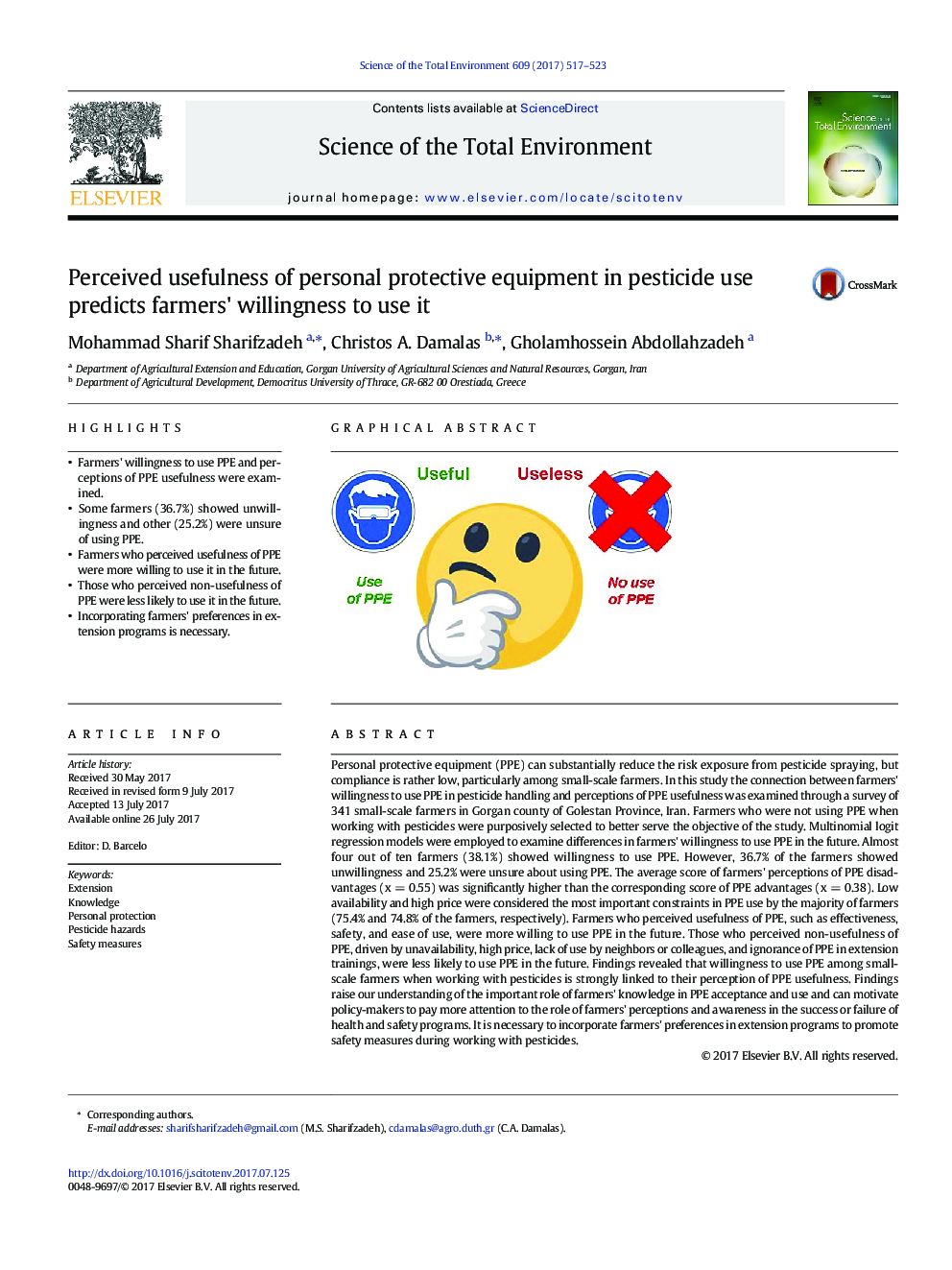| کد مقاله | کد نشریه | سال انتشار | مقاله انگلیسی | نسخه تمام متن |
|---|---|---|---|---|
| 5750778 | 1619693 | 2017 | 7 صفحه PDF | دانلود رایگان |
- Farmers' willingness to use PPE and perceptions of PPE usefulness were examined.
- Some farmers (36.7%) showed unwillingness and other (25.2%) were unsure of using PPE.
- Farmers who perceived usefulness of PPE were more willing to use it in the future.
- Those who perceived non-usefulness of PPE were less likely to use it in the future.
- Incorporating farmers' preferences in extension programs is necessary.
Personal protective equipment (PPE) can substantially reduce the risk exposure from pesticide spraying, but compliance is rather low, particularly among small-scale farmers. In this study the connection between farmers' willingness to use PPE in pesticide handling and perceptions of PPE usefulness was examined through a survey of 341 small-scale farmers in Gorgan county of Golestan Province, Iran. Farmers who were not using PPE when working with pesticides were purposively selected to better serve the objective of the study. Multinomial logit regression models were employed to examine differences in farmers' willingness to use PPE in the future. Almost four out of ten farmers (38.1%) showed willingness to use PPE. However, 36.7% of the farmers showed unwillingness and 25.2% were unsure about using PPE. The average score of farmers' perceptions of PPE disadvantages (x = 0.55) was significantly higher than the corresponding score of PPE advantages (x = 0.38). Low availability and high price were considered the most important constraints in PPE use by the majority of farmers (75.4% and 74.8% of the farmers, respectively). Farmers who perceived usefulness of PPE, such as effectiveness, safety, and ease of use, were more willing to use PPE in the future. Those who perceived non-usefulness of PPE, driven by unavailability, high price, lack of use by neighbors or colleagues, and ignorance of PPE in extension trainings, were less likely to use PPE in the future. Findings revealed that willingness to use PPE among small-scale farmers when working with pesticides is strongly linked to their perception of PPE usefulness. Findings raise our understanding of the important role of farmers' knowledge in PPE acceptance and use and can motivate policy-makers to pay more attention to the role of farmers' perceptions and awareness in the success or failure of health and safety programs. It is necessary to incorporate farmers' preferences in extension programs to promote safety measures during working with pesticides.
104
Journal: Science of The Total Environment - Volume 609, 31 December 2017, Pages 517-523
